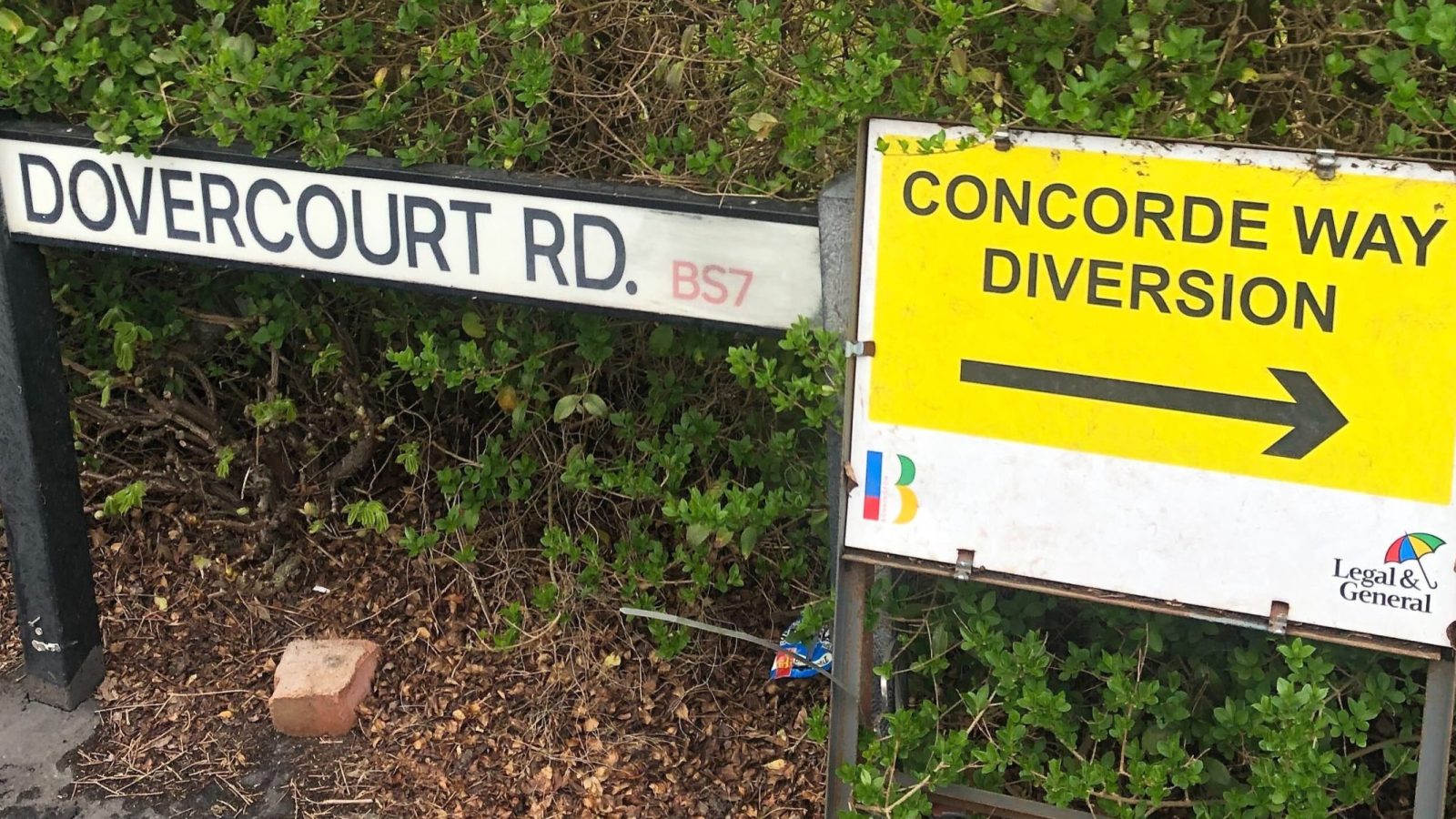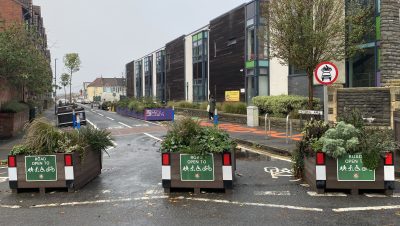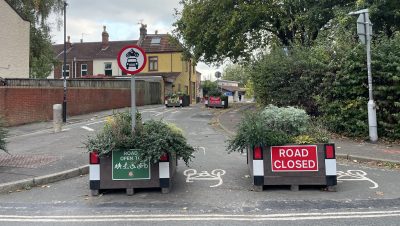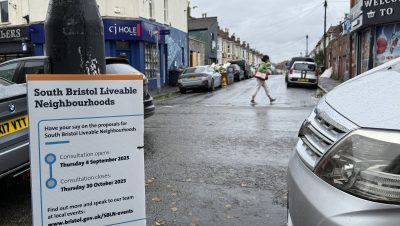Your say / Transport
‘Developers should not be able to close paths with impunity’
April 4 2025 marked the depressing fourth anniversary of a closure of a section of the Concorde Way that runs parallel to the railway line in Lockleaze.
The Concorde Way is a key walking, wheeling and cycling route built with Cycling City public funds more than 20 years ago to connect Cribbs Causeway and Cabot Circus.
The path, which is popular for a range of users because it is largely traffic-free, closed as a result of housing development work by Legal & General (L&G).
is needed now More than ever
The closure was originally communicated back in 2021 to be in place for just six months with the diversion requiring path users to follow a longer on-road route.
When Bristol City Council sold the Bonnington Walk development land with planning permission to L&G, they retained the strip of land beside the railway on which most of the path runs but still agreed to a complete path closure, presumably for the convenience of the developer as this would avoid the need for them to secure a long perimeter on one side of their site.
Also, with the benefit of hindsight, we know that no time limit for the closure was placed on the developer and no penalty clauses defined.
To make matters worse, the path on council land (and did I mention built with public funds?) has no legal protection as it has never been dedicated as a public right of way despite being in recorded public use across the former allotments since at least the 1940s according to the council’s own archives.
Why is it that when developers work impacts on the local community around their site, they and the planners appear to apply different standards for roads compared to paths when assessing the seriousness of those impacts?
Specifically, if development work means closing a road, then it must be kept to the shortest possible time, commonly with contractual penalties for delay; whereas closing a walking and wheeling route can occur with casual indifference and impunity.
This situation aligns to an attitude described by professor Ian Walker as “motonormativity” which is defined as the societal bias towards motor vehicles that distorts policy decisions, not just in planning matters as exemplified here, but also in our unconscious acceptance of the risks and harms from motor vehicles that we would not accept in other parts of life.
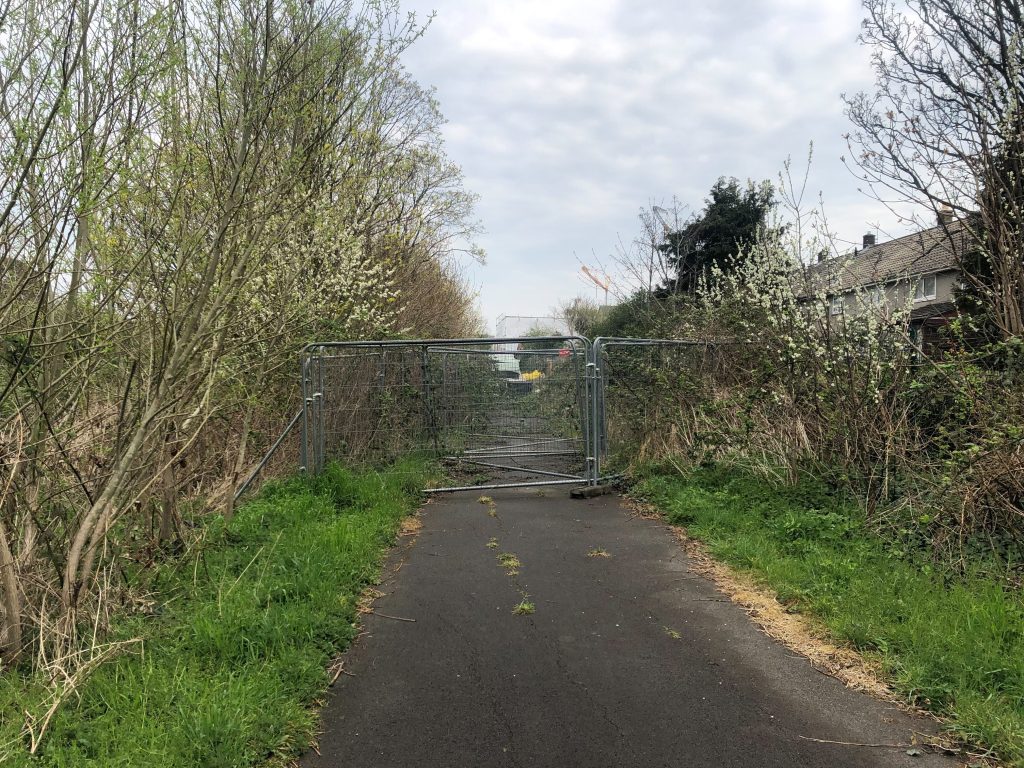
Concorde Way was meant to close for only six months but has now been shut for more than four years – photo: Aarun Parmar-Cunio
With appropriate consideration and separation, I would contend that the Concorde Way could have been kept open for the whole of the last four years, perhaps with the need for occasional temporary planned closures to facilitate some of the building works or site deliveries.
While we cannot turn the clock back now, we can learn lessons for the future from this sad and lengthy saga.
I would propose that new rules need to be in place that state when considering the need for a path closure that planners:
- should start from a standpoint of being unwilling to accept a path closure and place the onus on developers to find a way of working to avoid the need for complete closures, as they would with roads;
- must apply at least the same criteria to minimise the closure and inconvenience that they would apply for a road closure, and even higher standards, in situations where the closure forces those walking and wheeling from a traffic-free route onto a diversion along or beside active roads;
- must put in place upfront conditions and penalties to ensure that closures cannot be extended without consequence or intervention, just as are done for roads.
Concorde Way is by far the longest closure in our area, but not the only example of this, notably Festival Way has just reopened after a lengthy and disruptive closure.
Dreams do come true! This section of Festival Way has reopened after being shut since May last year pic.twitter.com/5V6CSpxqTi
— Martin Booth (@beardedjourno) April 2, 2025
Given that there are so few traffic-free active travel routes around, the impact of a closure of any one of them is felt acutely by people who choose to walk or wheel and want to avoid the pollution, noise and safety hazards of using heavily trafficked roads.
Finally, it’s been somewhat reassuring to me that Bristol City Council has recently adopted a motion in which it reiterates its expectation that pavements and cycle lanes are treated with the same care and attention as the carriageway by its contractors.
I look forward to seeing this put into action by its own planning policy decision makers too.
This is an opinion piece by Ian Pond, the chair at Bristol Cycling Campaign
Main photo: Aarun Parmar-Cunio
Read next:
 Our newsletters emailed directly to you
Our newsletters emailed directly to you